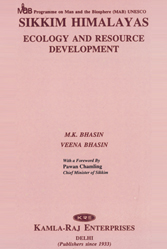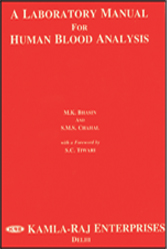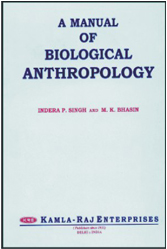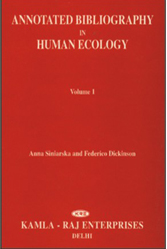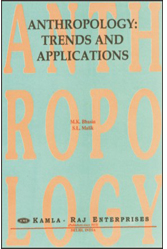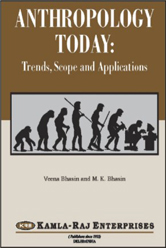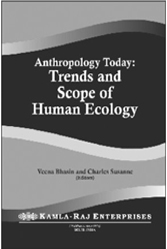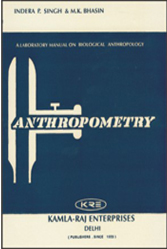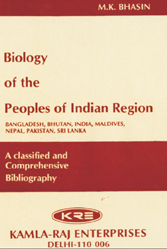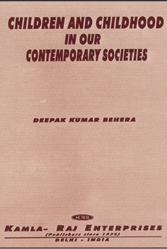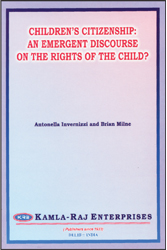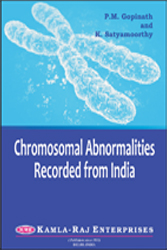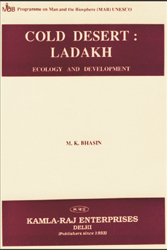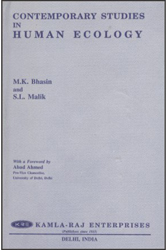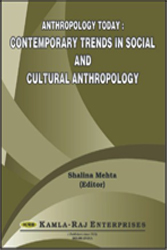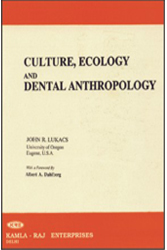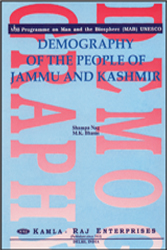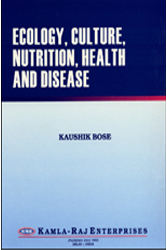R.C. MOHANTY ( Utkal University, Bhubaneswar, Orissa, India)
With a Foreword by: U. SCHIEWER
1995 " Pages: 184 " Size: 180 × 240 mm " ISBN 81-85264-11-2 " Binding: Hard "
Price: US $ 55/- Rs. 750/-
The volume Environment: Change and Management present an account of latest research on the role of man in sustenance of biological diversity vis-a-vis alterations imposed on the natural ecosystem, emphasizing conservation, land use, community analysis, pollution control and number of experimental approaches to meet the challenge. It is predominantly concerned with the recent changes leading to depletion of natural resources in various fronts and underlines possible measures to these areas. Contributors examine the management in monitoring environment and land forms, consider the factors limiting flora and biodiversity, review the problems in assessing pollution load and present the strategy in long term prespectives through laboratory case studies. The volume of Environment: change and Management will be of great use to involved in the fields of environment.
ANNA SINIARSKA AND FEDERICO DICKINSON (Centre for Scientific Research and Postgraduate Studies Cinvestav Merida, Mexico)
1996 " Pages: 400 " Size: 180 × 240 " ISBN 81-85264-15-5 " Binding: Hard "
Price: US $ 75/- Rs. 1450/-
Human ecology is a synthetic transdisciplinary science concerned with human life and culture as a dynamic component of ecosystems. Typical of an interdisciplinary science is an approach which integrates topics under study across the usual traditional or classical branches of science. Human ecology synthesizes part of the knowledge of several classical disciplines in a specific way. Of the many possible research orientation for understanding the relationship of people of their environment, not all are ecological, and only a few can be considered human ecology. More than 50 per cent of accumulated human knowledge is related to the study of man and some aspect of our environment. If we called all this knowledge human ecology, it would be a meaningless generalization. Because science has been based on the study of specific topics, for example such classic disciplines as physics, geology, biology, anthropology, and interactions such as genetics and ecology, or problems such as auxology and evolution, human ecology provides a definite transdisciplinary approach to study by assuming specific perspectives. Human ecology may be considered to have two parallel foci: (1) an academic ecology as a scientific discipline, and (2) an action oriented human ecology which is technological (environmental engineering, environmental preservation, environmental education, and health protection against environmental deterioration). The works of about one hundred ninety persons were classified and included in this volume. There are abstracts from others whose address are not included (sent by other authors, or by other institutions) but worthy of being added.
M.K. BHASIN AND S.L. MALIK (University of Delhi, Delhi, India)
With a Foreword by: ABAD AHMED
1998 " Size: 140 × 220 mm " Pages: 400 " ISBN 81-85264-20-1 " Binding: Hard "
Price: US $ 65/- Rs. 950/-
Ecological problems require to be handled with an integrated approach, for they are intimately connected to the biological endowments as well as to social and cultural characteristics. Adaptation and resource management, for instance, are both biological and cultural issues. The present volumes shows the direction to integrated research on environmental topics. The volume shows the importance of participation in tribal and peasant development, macro and micro-environmental designs, and eco-friendly development. This volume will be of great use as reference book to students and research workers in this field of Environmental Studies, Life Sciences and Social Sciences.
PRADIP K. BHOWMICK (Indian Institute of technology, Kharagpur, West Bengal, India)
2000 " Pages: 212 " Size: 140 × 220 mm " Binding: Hard " ISBN 81-85264-27-9 "
Price: US$ 25/- Rs. 450/-
Rural Development implies both the economic betterment of the people as well as greater social transformation . Increased participation of people in rural development process, decentralised planning, better enforcement of land reforms and greater access to credit and inputs go a long way in providing the rural people with better prospects for economic development. Improvements in health, education, drinking water, energy supply, sanitation and housing coupled with attitudinal changes also facilitate their social development. In view of this, the present study was conducted among tribals of district Midnapore, West Bengal. This volume will be great use as a refrence book to students and research workers in the field of Human Ecology, Envirinmental Studies and Social Sciences.
Rates include postage air mail delivery
Rates in Rupees (Rs.) for India
Prices of Some Titles subject to change without prior notice
